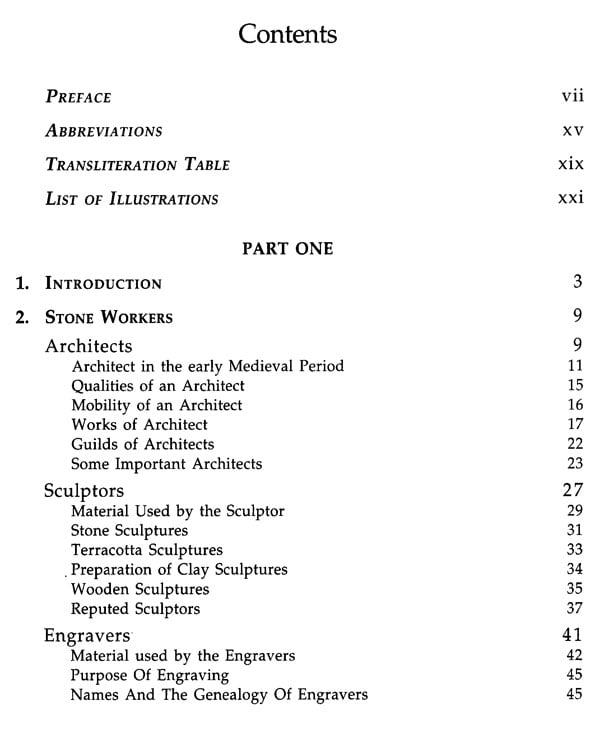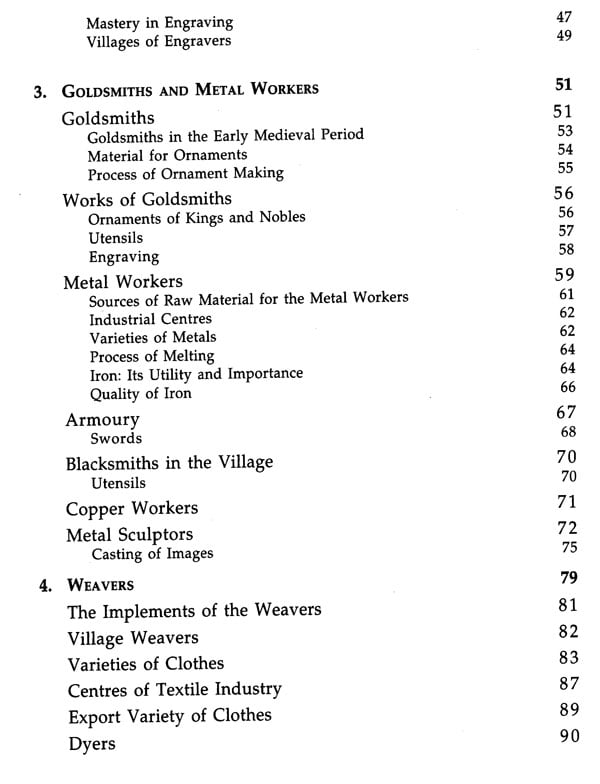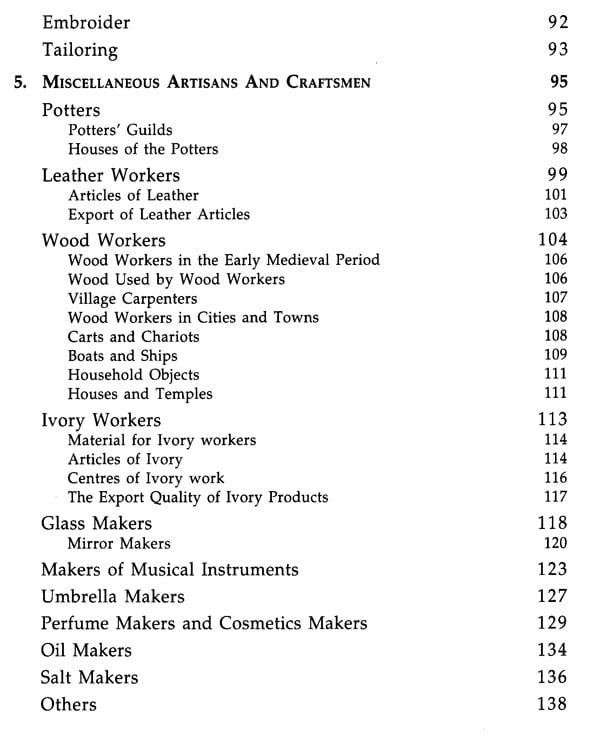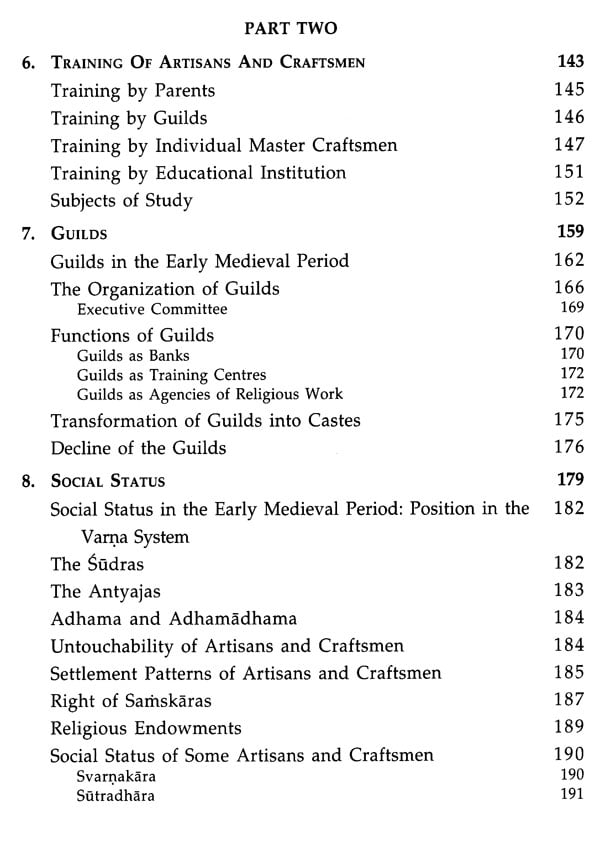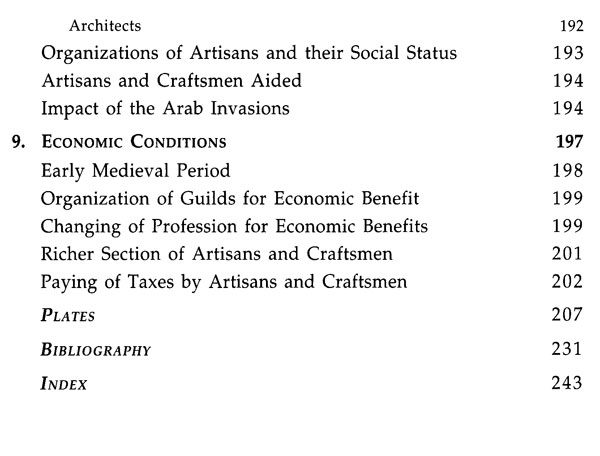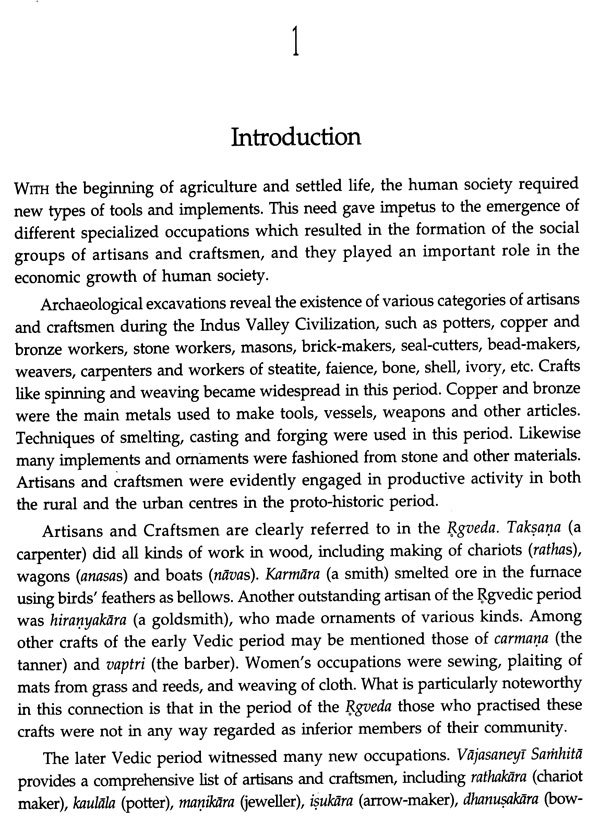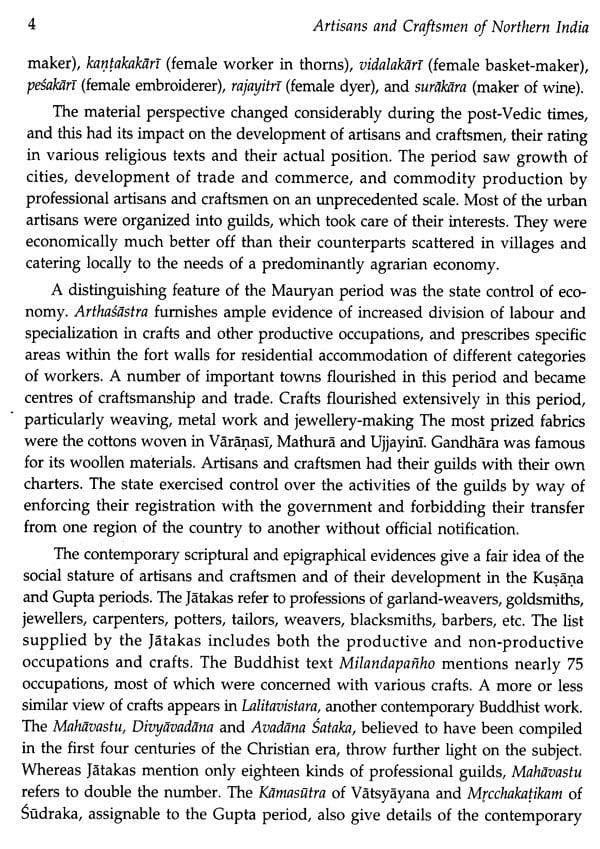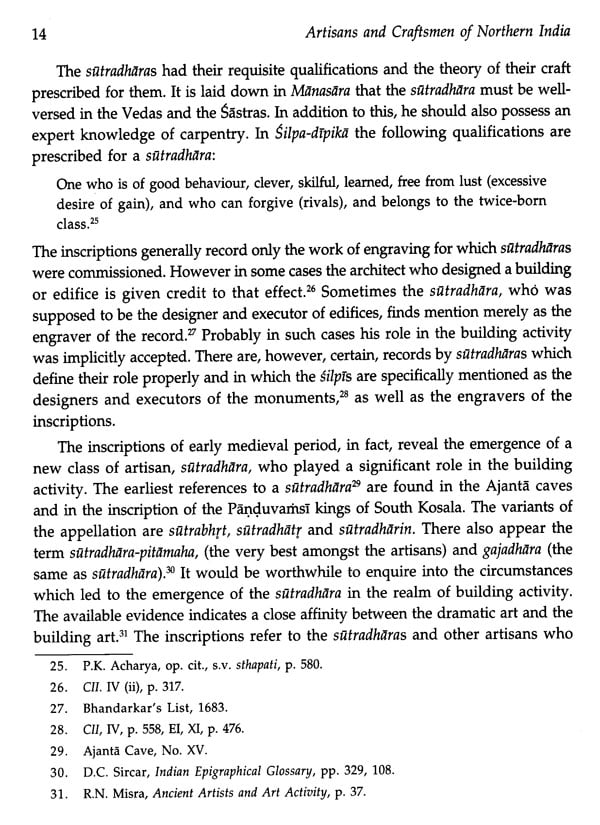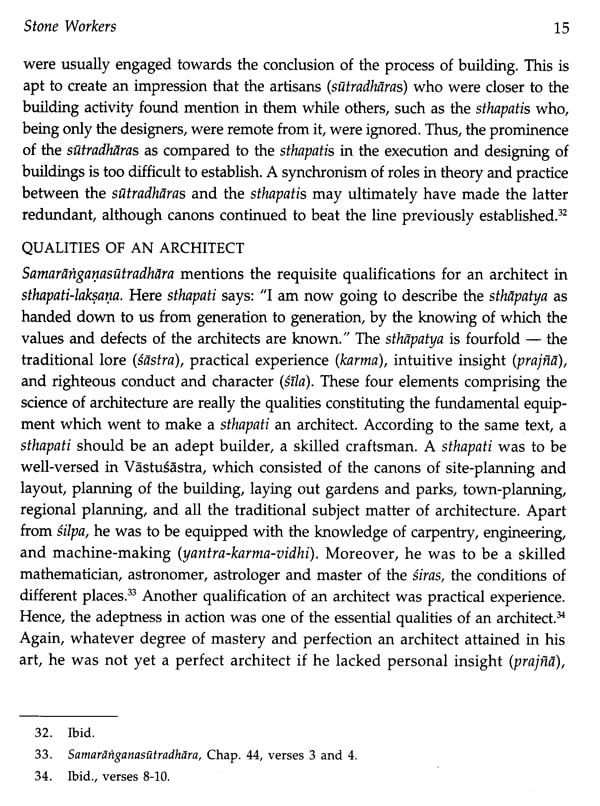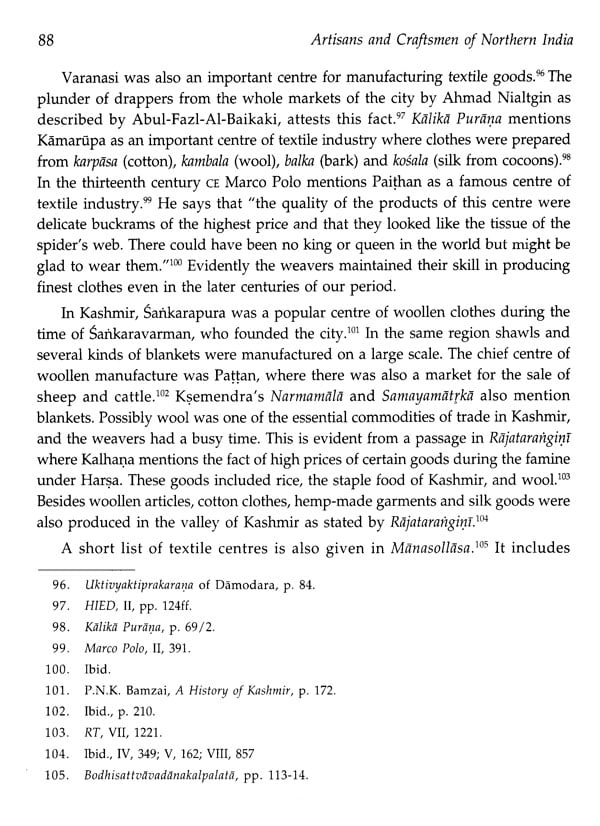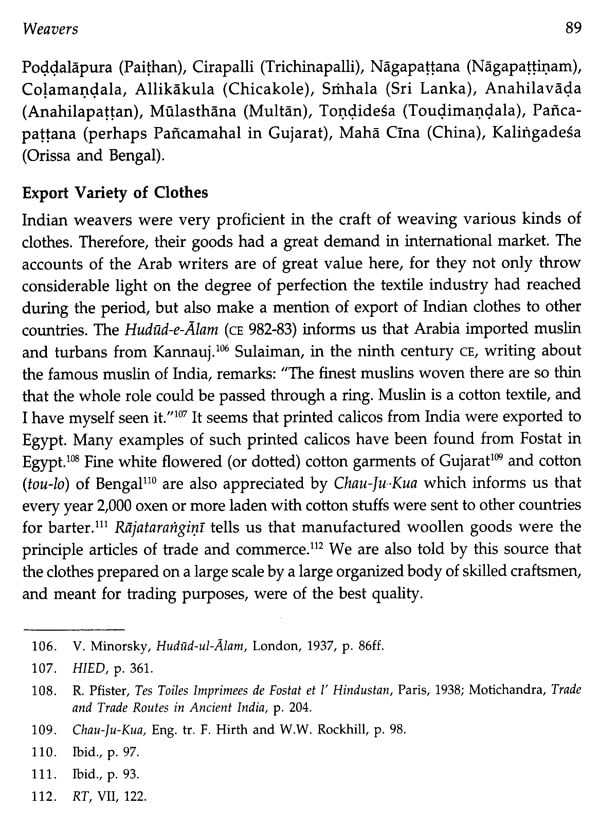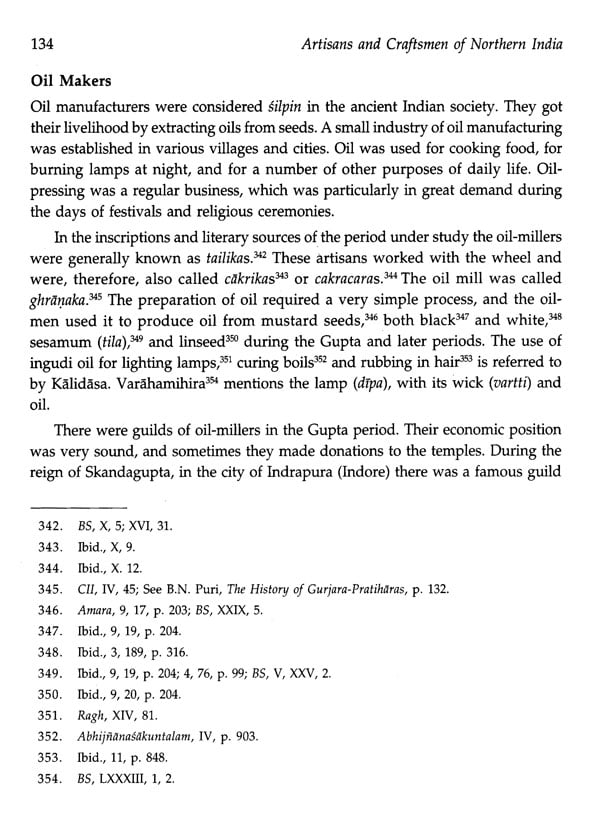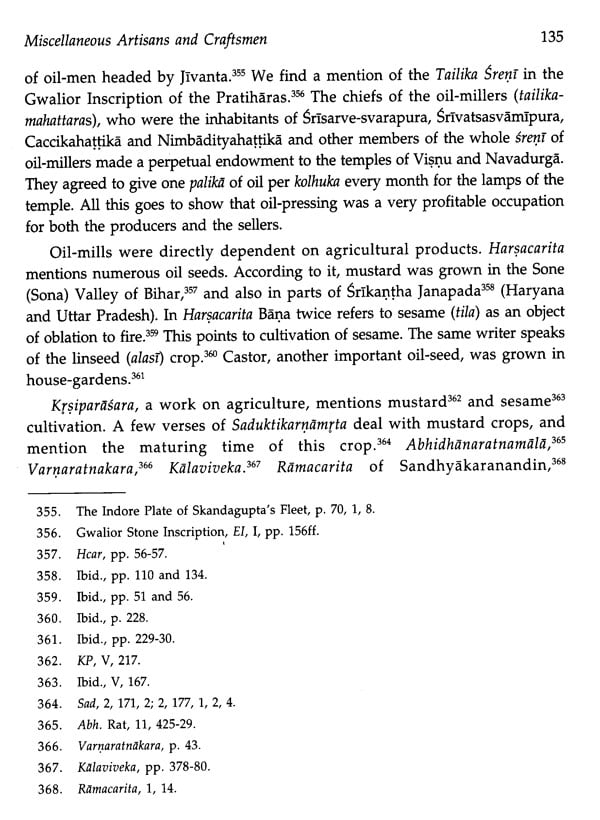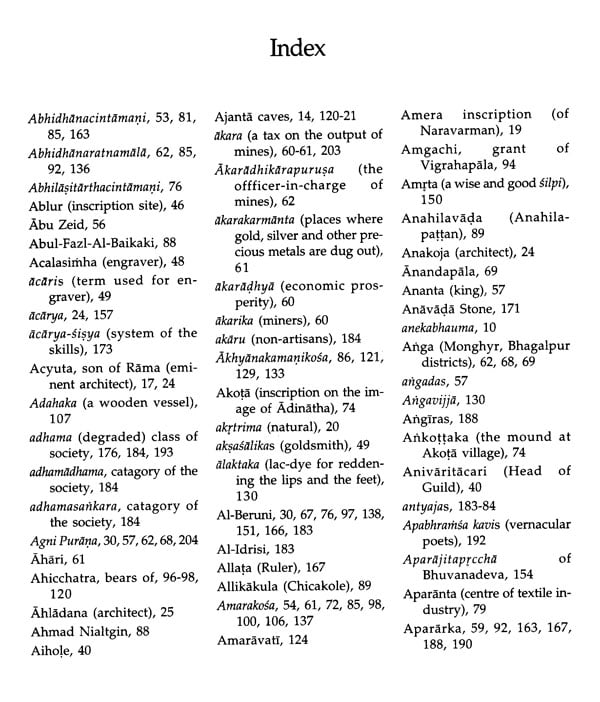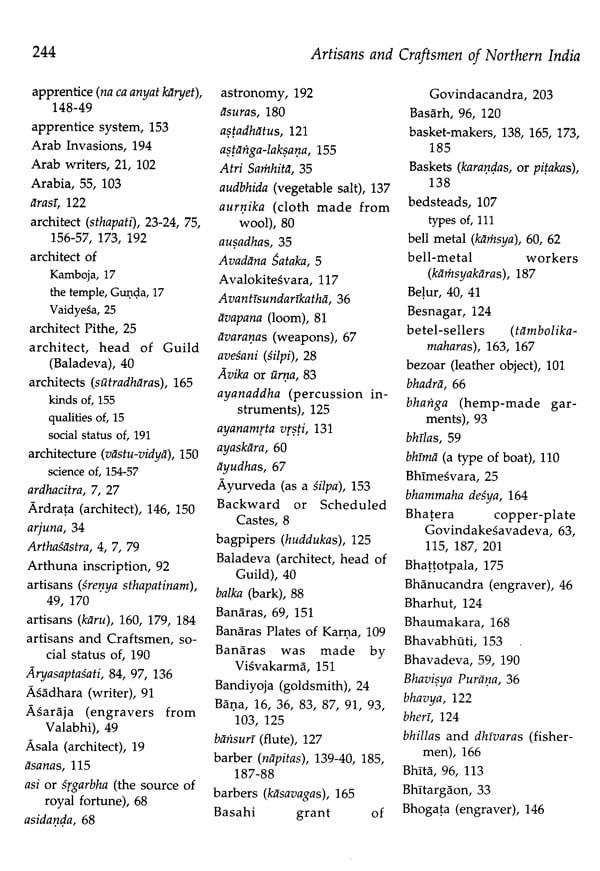
Artisans and Craftsmen of Northern India
Book Specification
| Item Code: | NAV966 |
| Author: | Kuldeep Singh Thind |
| Publisher: | D.K.PRINTWORLD PVT.LTD. |
| Language: | English |
| Edition: | 2009 |
| ISBN: | 9788124605233 |
| Pages: | 288 (38 B/W Illustrations) |
| Cover: | HARDCOVER |
| Other Details | 10.00 X 7.50 inch |
| Weight | 890 gm |
Book Description
The basic aim of the book is to expose the major contributions of artisans and craftsmen in portraying the society in different perspectives. These highly talented workers of India — this volume focuses on the northern half —played a key role in the evolution of life between the seventh and twelfth centuries CE.
The artisans such as potters, weavers, carpenters, architects, sculptors, brick-makers, metallurgy and metal workers, leather workers, painters, and the workers engaged in the various professions were the heroes of that time, who not only met the day-to-day requirements of the then society, but also portrayed different aspects of their life, in its true colour, through their workmanship. Unfortunately, there was no proper institutionalized provision for the education of artisans and craftsmen, so generally the former adopted the occupation of their parents, and hereditary skill was enhanced as it was transferred from father to son, and generation to generation.
This book, providing valuable insights exhaustively, is designed to create interest among the readers and scholars alike to understand the society of the period under reference through the immortal art of these creative people, and to pay rich tributes to the creators of our rich cultural heritage.
Kuldeep Singh Thind, born in an agricultural family of Village Barna, District Kurukshetra, Haryana is a visionary and has a passion for justice to all the organisms maintaining the ecosystem of nature and struggling for their natural rights.
He is keenly interested in the evaluation and emancipation of the neglected and suppressed classes of the society like artisans, workmen and peasants, who play a pivotal role in the making of human civilization.
Studied from Kurukshetra University, from where he did his Ph.D. Presently as Head, Department of History, at Government PG College, Ambala Cantonment, he is teaching Post Graduate classes.
ARTISANS and craftsmen of northern India played a pivotal role in the socio-economic life of the period between circa seventh century to twelfth century CE. Various categories of artisans and craftsmen, located in both rural and urban regions, not only fulfilled the needs of people in daily life, but also achieved mastery in their arts and crafts, and merited fame far and wide. Of course, simultaneously, they also earned their livelihood and satisfied their natural urge for novelty and creation.
Being always active partners in the socio-economic and cultural life of the aforementioned period, and forming an integral component and sizeable section of the society, the class of artisans and craftsmen deserves an exhaustive and critical evaluation in its proper perspective. This is what the present study aims at, also, for another reason the the artisans and craftsmen of the early medieval period have so far received scanty research attention. An endeavour has, therefore, been made here to analyse the professional life of the artisans and craftsmen against the background of the entire milieu of the early medieval period.
The present book, based on the literary, epigraphical and archaeological sources, is divided into has parts. Pet One deals with the different categories of artisans and craftsmen individually, and Part Two is devoted to assessing their socio-economic conditions collectively. Chapter 1 presents a brief introduction to the subject. Chapter 2 gives a detailed account of the stone workers, including in its purview the architects, the sculptors and the engravers. Chapter 3 gives information about the goldsmiths and the metal workers of the period under study. Chapter 4 is devoted exclusively to the important class of weavers. Chapter 5 is a miscellaneous account of some other classes of the artisans and craftsmen, viz. the potters, workers in leather and ivory, and makers of mirrors, musical instruments and umbrellas. It also deals with perfume and cosmetics-makers, oil- makers, salt-makers, and some other kinds of artisans and craftsmen of lower category, such as barbers, basket-makers, shield-makers, rope-makers, conch-shell workers, and makers of fans, mats, brooms, etc.
**Contents and Sample Pages**
